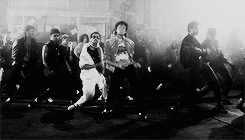Britney Spears wurde mit dem MICHAEL JACKSON Video Vanguard Award für ihre Leistungen und ihren Einfluss in der Musikindustrie ausgezeichnet und mit einem Dance-Tribute geehrt.
Jo Calderone, das männliche Alter-Ego von Lady Gaga, überreichte ihr den Award und wollte sie unbedingt küssen. Britney löste die spannende Situation auf und meinte lachend "Ich habe das schon gemacht." (eine Anspielung auf ihren Kuss mit Madonna - einer dieser outrageous Momente -ihr erinnert Euch sicher).
Britney bedankte sich für die Ehrung: "Dieser Preis bedeutet mir sehr viel, besonders an dem Abend vor Michael Jacksons Geburtstag. Er hatte einen so großen Einfluss auf mich, Gaga und auf Beyoncé."
Herzlichen Glückwunsch an Britney Spears!
(Ach ja: Beyoncé ist übrigens schwanger.)
(
 @RememberTheKing für den link)
@RememberTheKing für den link)Der Video Vanguard Award wird an Musiker vergeben, die einen prägenden Einfluss in der Musikindustrie haben, inbesondere was "Musik-TV" (MTV), sprich Musikvideos, betrifft. Die Auszeichnung wurde auch an Musikvideo-Regisseure verliehen, die besonders beliebte und erfolgreiche Musikvideos in der MTV-Geschichte geschaffen haben. 2001 wurde der Preis "Michael Jackson Video Vanguard Award" genannt, um Michaels außergewöhnliche Leistungen in Sachen Musikvideos zu würdigen. Ab 2003 wurde der Preis dann allerdings als "Lifetime Archievement Award" vergeben. (Quelle: Wikipedia und MTV)
Quellen: MTV (englisch)
Fan-Lexikon (deutsch)
Lieblingstars (deutsch)














Kommentar